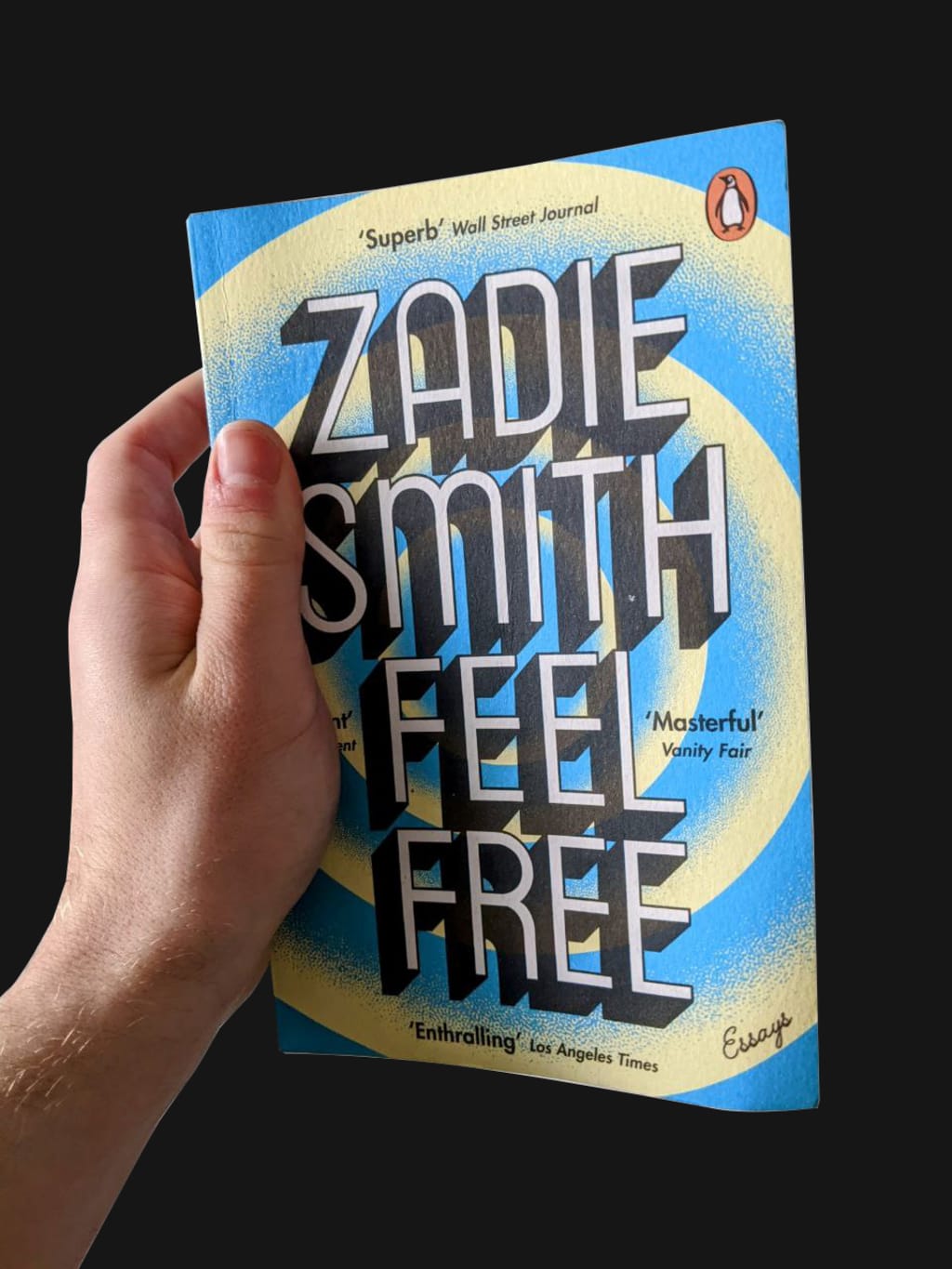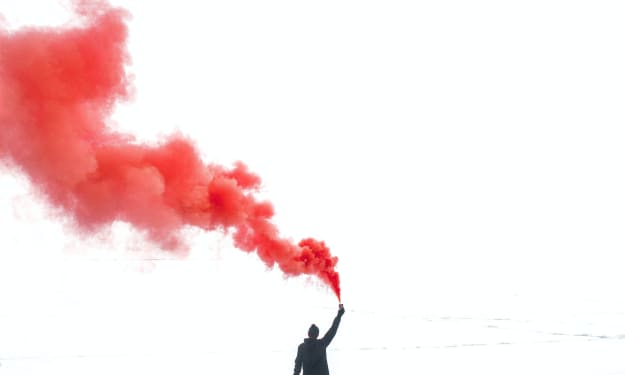to copy Zadie Smith (or why do we write?)
the text below is about books, meanings, writings, frozen butts and, of course, Zadie Smith

In Kyiv, books are suddenly everything everywhere all at once. You walk through a familiar area, and your eyes accidentally trip over a new bookshop in place of an old eatery the name and look of which you don’t remember.
Look at that! What was there before? Who cares — it’s a pretty bookshop now.
Those new bookshops are smart — their big, transparent windows lure goallessly walking pedestrians inside by radiating light and warmth. That works well (manipulatively well) in winter — this season, warmth and light sell better than cheap beer and 1 euro oysters. We have a bookshop just like that close to our flat.
I noticed something.
I’m in a relationship where my turns into our— is that old-fashioned and unliberated? I can’t say my flat because it’s we who live there. There’s also I in that we. I could separate it, yet I choose not to. Does it mean I’m losing my I— or am I willingly giving it up for something bigger and better? I’m trying to grope a conflict inside, but the lump of accord is what my fingers feel instead.
The bookshop I mentioned is called Sens— a Ukrainian word for meaning.
That makes sense, right?
Its large dwelling stands in front of Latviysʹkyy Skver. The square is a little public spot. It’s an ethnic metallic sculpture that stands in the centre. It’s a couple of cute benches with Latvia’s regional names and outlines engraved. It’s a few odd people sitting on those benches during lunch — less so now when it’s cold, and you can easily freeze your ass if it comes in contact with anything outside for too long. It’s also a reminder about my tall, blonde friend Roman from Latvia, who lives in London with his wife Irina. The last time I was at the square, I took a photo of a bench and send him. He replied: that’s weird. The end of the correspondence. Those distant friendships…
When Sens opened last winter, I didn’t think it would survive till this winter. The place was nice but empty and lifeless. Then the war happened, and life lost even those small but vital bits of sensibility it had before.
Fast forward, Sens hasn’t just stayed — it’s become a bright spot of meaning for the local community. As a literary, intellectual and civil lighthouse, it helps us navigate through these dark barbaric times. It’s also one of the few places in the area that shines through energy blackouts. It’s not magic. It’s a complicated science of generating electricity with an expensive generator. A generator is indispensable these days for any business to continue… businessing.
At the lighthouse, they serve good food, brew good coffee and sell good books. Shelves and shelves of Ukrainian books that employees of Sens curate with a kind of care that only people who care about books could employ.
For a curator in me who cares, it all makes sense.
Today, Sens is no longer lifeless but full of life and crowded with people of all-sort. A couple of all-around propitious couples with their appropriately good-looking dogs of small and average sizes. An odd number of classy elderly men and women who’ve lived in the area, literally, for ages. Quite many students of high schools and universities with defiant protest in their eyes. A fair amount of single creatives occupied with the creative activity of their choice. Busy baristas. My boyfriend. Me.
We’re, basically, a community of fairly fortunate people who all live in a posher part of Kyiv and have money to go to Sens.
We go to Sens to find meaning in a cup of coffee and a freshly-printed book, which feels pathetic when somewhere on the distant but not-so-distant front people are looking for ways to survive.
We go to Sens to come to our senses in these senseless times.
Last Friday — on the same lookout for meaning and personal sensibility — I went to a bookshop called Bookling. It’s an old-school book place on the fourth floor of a huge shopping centre with big yellow letters on top spelling GULLIVER. To my surprise, almost half of the books in Bookling were in English. I came to buy The Remains of the Day by Kazuo Ishiguro. It wasn’t there. I bought An Artist of the Floating World instead.
While I was picking Ishiguro’s novel, my eyes fell on Zadie Smith. I, of course, heard about Zadie Smith’s white teeth… I mean I heard about her novel White Teeth. There were no White Teeth on the shelf, but a thick book of Smith’s essay was present. I make my decisions fast. I took it.
Holding it, I felt a tiny weed of regret growing in me — I don’t like reading other people’s essays, especially when they’re critically acclaimed bestselling authors who went to Cambridge and teach creative writing at NYU. For a person with fluctuating self-esteem who writes— reading Zadie Smith’s thick collection of her best essays is intimidating.
Okay, Zadie Smith, the challenge is accepted.
No.
It’s not a challenge, and it’s no competition. I’m just chilling, just reading some essays for my pleasure, just appreciating someone else’s wonderful literary work.
We’re all beautiful unique flowers on a huge green field of life.
Peace.
Love.
I came back home and threw myself into the book. I read her first essay titled North-west London Blues. I felt sad — unfortunately, Zadie Smith’s writing is good. It’s so good that I felt a natural itch to copy it, to emulate it, to praise it and idolize it. It’s that kind of writing that begets repetition and copycatting.
After a while, that jealous admiration transformed into something else: frustrated irritation. It wasn’t because Smith’s writing got worse. It actually kept on being good. Too good to be true. Maybe too good to feel emotionally connected with?
Zadie Smith’s essays are an incredible intellectual undertaking, yet come forward as humourless and monumental — two ingredients that make any writing intimidating and unreachable for a reader.
I felt irritated because I realized my writing could and would never be like that: scrupulously articulate, perfectly sound, and rich with complex words, themes and structures.
My writing is inferior to Smith’s as it lacks that objective intellectual complexity. Intellect is present here, but its concentration is no match for Zadie Smith. Her mind is a strong dark brew of speciality coffee beans. Mine is a medium-rich organic chamomile tea. It tends to fall more on the emotional side…
Emotions can look ugly and weak. I mean, they’re often interpreted as being ugly or weak.
Let’s talk without emotions…Let’s put our feelings aside…Let’s not get too emotional…
Why do we shut down feelings to let intellect take over?
I could blame capitalism. I could blame masculinity. I could blame the cult of productivity. I could find a million intellectual reasons to explain why we do what we do but, I don’t know for sure and I don’t have the kind of specialist knowledge to come up with a sound argument to prove that discriminating against what we feel is not okay. I just feel that not feeling is not okay.
I use feel too often.
A good writer can find many many pretty smart words to express what he feels, but at this very moment, I just feel.
After even more a while, I felt that comparing our writings is pointless. We’re both indulgent in how we write, but in different ways.
Where Zadie gets too long, Tony gets too short. Where Zadie gets too specific, Tony gets too abstract. Where Zadie gets too serious, Tony gets too light-headed. Where Zadie gets too perfect, Tony gets too sloppy. Where Zadie gets too intellectual, Tony gett gets too emotional. Where Zadie thinks too much, Tony feels too much.
Where Zadie writes, Tony writes, too — and that’s of importance.
Our writings, perhaps, start from different places in our bodies, but it all leads to the same result —we write to satisfy an existential need, either intellectual or emotional, that we can’t satisfy in any other way. In writing, we try to understand what’s in and outside of us. We write to be what we are or want to be.
I just thought about something simple which is probably too simple to explain everything. I still like the thought. Maybe Zadie's overindulging in intellectual writing because as a woman she was often denied a right to intellectual stimulation. Tony, on the other hand, tries to write himself into feeling valid in his emotionality — something that we men are taught to feel ashamed of.
We’re writing away our insecurities.
We’re writing a way towards feeling and thinking that we’re complete and enough and valid and unlimited in how we express ourselves.
Zadie Smith would probably say that I oversimplify our complex human experience — which I probably do, indeed, simplify!
Zadie Smith will say nothing because she’ll never know that either I or this text ever existed.
It would be, however, fun if Zadie Smith knew.
About the Creator
Anton Kutselyk
Follow me on Medium: https://medium.com/@antonkutselyk






Comments
There are no comments for this story
Be the first to respond and start the conversation.